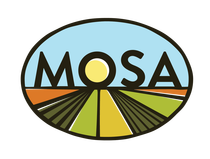|
I may disappoint you with this, but I won’t be citing a bunch of research studies in this post. You can Google away and find 100 research studies supporting plant-based diets as best, and another 100 saying meat is no harm to human health.
I will, however, give you my takeaway from having studied this topic extensively for the last 10+ years- through nutrition school, books, research studies, articles, doctors, scientists, podcasts, documentaries, personal experience, customers… you name it! Before I even talk about the headlines and the studies, I want to state 3 things about meat I feel very confident about after all my research and studies.
My belief is quality over quantity. I absolutely agree that many of us should be eating less meat and more plants (and yes, that would still be a “plant-based” diet!). Consider this:
But what about all those recent headlines saying a vegan diet is best for our health? First of all, how many of us are reading beyond the news article? or worse, the headline? or even worse, the social media post or meme?!?! When you dig in, you find there’s a few issues many scientists and doctors have found with nutritional studies, especially in the plant-based vs meat studies. #1- Funding I’ll start with this basic issue, and unfortunately, this is not limited to nutritional studies. Who is funding the study you are reading? There are many studies these days funded by corporations and private entities with a profit agenda in play, and this, of course, will skew results. The Vegan Foods and now Lab Meats market is growing rapidly! Think of it- with climate change concerns, exposure to the atrocities of CAFOs, and more regulation on them to farm cleaner, it is becoming more expensive for these big companies to produce cheap meat, so they are getting ahead of the game! Fake Meats as the future! They are way cheaper to produce (and definitely cleaner than CAFOs!). , and because they are perceived as “healthy” foods they can charge a premium. Win-win! #2- Observational Studies and the Healthy-user bias When people read about a research study, we have to pay attention to how the study was designed to understand the quality of the findings. Randomized controlled trials (RCTs) are considered the gold standard for clinical research. They have a high impact on clinical guidelines and on healthcare in general, but these are extremely difficult to produce and rare in food and dietary studies. The majority of nutritional research studies are what’s called Observational studies. These are ones where researchers look at a certain group of people and try to draw inferences from their behavior about associations with a disease. These studies are considered low quality research studies. Observational studies were actually never meant to prove a hypothesis, they were meant to generate a hypothesis! The tool used to collect data in observational studies is often a questionnaire, which is extremely weak since people’s memory is not precise and accurate when it comes to what we eat, and we tend to underreport calories and foods consumed. The other problem with nutritional studies is something called “the healthy user bias”. On the topic of plant based vs. meat, observational studies don’t consider anything else in the diet or furthermore, in lifestyle! It is meat vs. no meat. In general, the majority of vegans and vegetarians #1- eat more fruits and vegetables #2 shop at health food stores and #3 have a healthier lifestyle when compared with the GENERAL meat eater. And this is my beef with that! Not all meat eaters are the same. For example, there’s a huge body of plant based supportive studies that have studied Seventh Day Adventists, but SDAs overall diets and lifestyle are healthier. It is part of their religion! So yes, compared to the fast-food eating, smoker, drinker omnivore, hands down plant-based diet will give you a better result. On the other token, studies have shown that, because red meat has been perceived as “unhealthy” for so many years, people who eat more red meat are more likely to smoke, be physically inactive, and eat fewer fruits and vegetables. So, one of the inevitable results of the healthy-user bias is that many observational studies end up comparing two groups of people that are not at all similar, and this casts doubt on the findings. Correlation vs. causation. #3- A Reductionist Approach This doesn’t only apply to research studies, but also to the way we are viewing diets in general and even medicine. Philosopher Gyorgy Scrinis came up with the term “nutritionism,” which he defines as: “the reductive approach of understanding food only in terms of nutrients, food components, or biomarkers—like saturated fats, calories, glycemic index—abstracted out of the context of foods, diets, and bodily processes.” In other words, it’s a focus on the quantity of certain foods (like red meat) or macronutrients (like fat or carbohydrate), rather than the quality of the overall diet pattern. This has led some prominent epidemiologists like Stanford professor John Ioannidis to heavily criticize observational nutrition research. In a famous paper called “Why Most Published Research Findings Are False,” Ioannidis points out that “claimed research findings may often be simply accurate measures of the prevailing bias.” Now, besides most of the studies been flawed, here are some issues I find with vegan diets, especially. Is it elitist? Some critics of vegan diets state that the diet is “elitist” as it requires monitoring of nutrient levels, expensive supplementation, and of course, to be a healthy vegan and even vegetarian diet it has to be done properly. Many doctors and Hollywood celebrities’ proponents of the diet have the ability to afford all this testing, supplementation, and healthy eating (heck, some have personal chefs cooking for them!) but when it comes to feeding the general population, meat will provide much more nutrition for the buck than that of plants + supplements + medical monitoring. Supplementation Needs. When studying nutrition, I remember there was always a caveat with plant-based diets- you may need supplementation. Some nutrients are just not at all available (or too small in amounts) in plants, period. A vegetarian diet does have the advantage of allowing animal products like dairy and eggs, but vegan diets definitely need supplementation. We also always learned the best diet is one found in foods, not supplements. I am not against supplements, these can be very helpful, especially in therapeutic use, but if we are healthy and are eating high quality whole (unprocessed) foods, we shouldn’t need an ongoing daily vitamin to be healthy. To me, it just isn’t natural. My Conclusion? What to do? Unfortunately, there is no short answer and no “one size fits all” when it comes to eating meat or not. I don’t believe in “either/or’s” and don’t think this reductionist approach of eliminating certain foods or macronutrients is good. Having said that, there are extremes in the pendulum of how much meat we need. For the general population, I know we need to eat less of it and when we do, it has to be better quality. However, I know from experience, that some people need more meat and some less. Its just in our nature, genetics, and health conditions. I see it in my own children. Kids are not conditioned to eating a certain way yet, so it is fascinating to observe their cravings. Our oldest daughter needs, craves, and loves meat, where my youngest is happy with oatmeal, yogurt and would honestly live on bread and dairy if I let her! Paul needs more carbs than I do. I need and thrive with more meat. So our pendulums are different, even in one’s family members. I also have customers with specific health conditions that thrive with more meat than plants. At least 5 of them are prior vegans or vegetarians that due to health issues have had to switch back to meat, others with Lyme disease or anemia, and others with autoimmune conditions. Are you called to or want to try vegan? I say go for it! Try it out! Many people don’t crave or need meat at all, or very, very little of it. I would suggest though, to do it with some professional help- be it by at dietician, nutritionist, or “nutritionally trained” doctor that can guide you and monitor your nutrient levels. There are well documented health risks to vegan diets that we shouldn't ignore- like anemia, increased risk of depression and anxiety, inhibition of zinc absorption, and overconsumption of carbohydrates leading to fatty liver and blood sugar deregulation, so you do have to be careful to be able to get all your needed nutrients. So, my conclusion in this whole topic is NO- you do not need to eliminate meat and animal products to be healthy. See and feel what works for you, and look at your overall diet. Add more plant foods. Eat better quality food. Exercise regularly. Drink more water. Sleep better, and manage your stress! Thanks for reading! Hope you learned something, and if you wish to leave a question, comment, counter argument, etc... please leave it in our post comments, I'd love to hear from you! Want to dig deeper? Here are a few resources to check out: A good (albeit long) podcast debate between a prominent Vegan cardiologist and a former vegan turned Paleo Functional Medicine practitioner. https://podcastnotes.org/joe-rogan-experience/kresser-kahn/ Red Meat and Cancer: https://www.ncbi.nlm.nih.gov/pubmed/21540747. A 2011 meta-analysis of 34 prospective studies on red meat and colorectal cancer concluded that the available data was insufficient to support an association between red meat intake and colorectal cancer. Red meat and Heart Disease: https://www.ncbi.nlm.nih.gov/pmc/articles/PMC2885952/. This meta-analysis that included more than 1.2 million participants found no association between the consumption of fresh, unprocessed red meat and the risk of coronary heart disease (CHD), stroke, or diabetes. https://www.ncbi.nlm.nih.gov/pubmed/26017245. This meta-analysis of 11 studies concluded that the scientific literature does not support the existence of a relationship between red meat intake and an increased risk of myocardial ischemia. https://www.ncbi.nlm.nih.gov/pubmed/8842068. This study assessed the relationship between dietary habits and mortality in vegetarians and omnivores who frequented health-food stores, based on the premise that health-food store shoppers would be more health-conscious, regardless of whether or not they ate meat. It was found that both vegetarians and health-conscious omnivores live longer than people in the general population and that there was no survival difference between vegetarians and omnivores. https://academic.oup.com/ajcn/article/89/5/1613S/4596950. In this study, vegetarians and their omnivorous friends and family (who were recruited with the assumption that they would be more health conscious than the general population) were followed for five to 10 years. The risk of death for vegetarians/vegans and health-conscious omnivores was 52 percent lower than the risk of death for the general population. There was no difference in mortality between vegetarians and omnivores. Chang-Claude J, Hermann S, Eilber U, Steindorf K. Lifestyle determinants and mortality in German vegetarians and health-conscious persons: results of a 21-year follow-up. Cancer Epidemiol Biomarkers Prev. 2005; 14(4):963–968. http://cebp.aacrjournals.org/content/14/4/963.long. The Heidelberg Study in Germany compared lifespan in health-conscious omnivores with vegetarians (a total of 2,000 participants). The risk of death for both vegetarians/vegans and omnivores was 59 percent lower than the risk of death for the general population. They found no difference in mortality between vegetarians and omnivores. The study found that a high level of physical activity was the greatest predictor of lifespan—independently of whether meat was consumed. https://www.sciencedirect.com/science/article/pii/S016752731401290X. A meta-analysis of studies comparing mortality in vegetarians/vegans and omnivores found no mortality benefit for vegetarians/vegans. It also concluded that any previous observed benefits were driven by Seventh Day Adventist studies, which are plagued with confounding variables. "Health risk factors associated with meat, fruit and vegetable consumption in cohort studies: A comprehensive meta-analysis." Long, but interesting. Read last paragraph of "Discussions".
4 Comments
 It is no secret there is a giant diet trend on becoming Vegan. The movement has been gaining force for a few years now, strengthening in the last couple years with the IPO of Beyond Meat and introduction of plant-based burgers to fast food restaurants. The big reasons supporters claim for the movement are #1 it is better for your health, #2 it is better for the environment, and #3 to protect animals, or animal welfare. As a nutritionist and health coach, and of course a beef farmer, I get the question a lot, and I figured I would answer to the best of my knowledge and based on my experience. I confess I have been trying to write this post for months, getting overwhelmed, and realizing that regardless of how “simplistic” a headline or article might make it seem, the topic is extremely complex. For that reason, I am dividing this topic into 3 posts. Today I’ll start with my personal background and story, in a few weeks I will write about “the science and nutritional research”, and in April, just in time for Earth Day, I will write about “a vegan diet for the environment”. Please NOTE: I am by NO means against a vegan diet for whatever reason you would do it. There is enough divisiveness in our world today and I see one developing in the plant based vs. omnivore discussions, but I truly believe there shouldn’t be! We can all listen and learn from each other. We all have reasons why we make our choices, and this is why I start this topic explaining my personal background and experience. So let’s dive in… My Personal Story Yoga and “ahimsa” After a few years of working in the corporate world as a CPA in accounting and finance in my 20’s, I became interested in yoga and trained for a number of years. I eventually left the corporate world and became a teacher and manager at a yoga studio in downtown Chicago. During that time, all my yogi friends were vegetarian. I also learned one of the important principles of yoga- ahimsa- “respect for all living things and avoidance of violence toward any sentient being”. So of course I quickly dropped meat and joined the club! A month+ into it, I did not feel good. There were no amount of beans, eggs, cheese, avocados, and nuts that would fulfill me. I was low energy, always hungry, weak, jittery, cold, etc.. but I was determined. Desperate for answers on what to do, I talked to my beloved yoga teacher- a 70+ year old vegetarian and Hindu man from southern India, and explained my dilemma of wanting to be vegetarian but not being able to feel good. We had a long conversation, but his message was: “So you are harming yourself so you don’t harm the animals? Eat the meat!” Oh my God! I got the blessing, but I admit it didn’t come without shame that I couldn’t make it work. Fertility Struggles Around that time Paul and I were ready to have kids! But fertility was not on my side. I couldn’t get pregnant and when I did, I miscarried. I wasn’t ready to get into IVF, needles and doctors visits, so I decided to pursue some natural ways. I went to a wonderful holistic center for fertility where I received nutrition consults, acupuncture and Chinese herbs. This was my first experience with a nutritionist. After looking at what I was eating (and even though I was back on meat, I always tried limiting it) she recommended two things: full fat dairy and more meat. WHAT? This went against everything I thought I knew about nutrition! After all, don’t the headlines say fat and meat are bad? Well, "it is not that simple", she explained. Long story short… it helped. I became pregnant and had a healthy pregnancy and birth. And today I know for certain that she was right, it is not that simple. My Nutrition Studies This experience sparked my curiosity and fascination on how food can have such a profound effect on our health and how little we actually know about it. Pregnant with Cecilia I went on to study nutrition at the Nutrition Therapy Institute in Denver, CO. I learned a lot about biology, biochemistry, the function of the different nutrients in our bodies, etc. but I still felt like I didn’t know how to actually work with clients, which is when I later pursued my Health Coaching certification through the Institute for Integrative Nutrition. The principle of their program is “There is no ONE diet for everyone- each body is different and we should eat differently". Wow! What a revelation that was! Drinking more water and eating more fruits and vegetables is good for everyone, right? But even that is simplistic. Some of us should eat a little less fruit, others cannot tolerate beans, and some vegetables are actually not good for some. They taught us to work with our clients to figure out what is the best diet for them, by helping them use their own experience, observation, and of course, looking at their genetics and health conditions. Health Coaching During my work as a health coach, it was fascinating to see how some of my clients actually would thrive with less meat, and others, like me, needed it. Some didn’t tolerate dairy so well, and for others, it is beneficial. Meat, gluten, starches, sugar, fat, the timing of food, fasting, frequent eating- these ALL depend on YOUR biology. It was a great experience to work with clients "one on one" and discover together what worked for them- regardless of what they thought was "good or bad for you". Farming Through selling our organic, grass fed beef, we have been lucky to meet customers from all walks of life and that purchase our beef for different reasons- some for environmental concerns, others for better animal welfare, and many and most for health reasons. Most people have heard that grass fed beef is better for you than grain fed beef, but we’ve also had customers with Lyme disease and autoimmune diseases whose digestive systems are so fragile they may not tolerate legumes or other plant sources of protein or whose doctors have recommended grass fed and pastured meats for its valuable nutrients. We have some anemic customers whose doctors were informed enough about nutrition (and most aren't!) to encourage them to eat beef liver and more grass fed and pastured meats. We even have a former vegan who couldn’t do it anymore for health reasons but always wants to make sure her meat is of good quality and that the animals are living a good life while at the farm. It has been incredibly humbling and rewarding for us to be able to nourish, and even heal, so many people in our community with food we produce. While I don’t work as a health coach anymore because we decided to focus as a family on our farm business, I still love nutrition and continue to read, listen, discuss and learn about food as medicine and the powerful ways you can prevent (and even heal) disease naturally. In the next post I will dive into what I have learned about the science of plant based diet and omnivore diet, and the nutritional studies around it. I hope you stayed tuned, and thanks for reading along! |
AuthorMarisa usually writes about nutrition, grass fed beef, organic agriculture, as well as sharing delicious recipes; Paul writes about farm work- sharing his stories and experiences, and most times... we both collaborate on the stories! Archives
March 2024
Categories
All
|
 RSS Feed
RSS Feed


